- Home
- Adam Croft
The Perfect Lie Page 2
The Perfect Lie Read online
Page 2
I stand, or at least try to. My legs feel like jelly. Eventually, I manage to put one foot in front of the other and I follow him out of the cell.
My stomach is churning, and I feel like I’m going to be sick. My whole body is a whirlwind of confusion, and I really don’t see how I’m going to be able to hold on to any of this. Everything has been turned upside down and I can’t see any way out.
I’m led into a small side room with a desk and two chairs. It’s barely the size of a broom cupboard. A man in a suit comes in a few seconds later with a leather case under his arm.
‘You must be Amy. I’m Brian Conway,’ he says. ‘I’m the duty solicitor today. How are you?’
‘Uh, I don’t know. Confused. Upset. I feel sick.’
‘Okay. Well, you just give me a shout if you want to stop at any time, alright?’
I nod.
‘Right. So, you’ve been arrested on suspicion of the murder of your father-in-law, Roger Walker. Is that right?’
I nod. ‘I think so.’
‘Okay. And what happened?’
I look at him. ‘When?’
‘Roger’s death. Talk me through it. Were you at the scene?’
‘No! The first I heard of it was when the police knocked at my door and arrested me. I didn’t even know he was dead.’
‘Alright. So do you have any idea why the police arrested you? As I understand it, he was only killed this morning. It’s very strange for the police to immediately turn up and arrest you without having good reason to think you were there. Did you go out at all this morning?’
‘No. I’ve been at home since I got home from work last night. I was sitting out in my garden reading a book, and I came inside and heard a knock on the door and… And that was it. They were there.’
‘Is there anyone at home who could verify that?’
I rub my forehead. ‘Brendan, my husband, and our boys were at home with me all night. They went to football early this morning.’
‘And you’ve been on your own since?’
‘Yeah.’
‘At home?’
‘Yeah.’
‘Okay. Well the lack of an alibi isn’t massively helpful, but the onus is on them to prove that you were at the scene, not on us to prove you weren’t. So if you weren’t, then presumably there’s no way they can prove it and no way it’ll go to a charge.’
I look at him. ‘Presumably?’
‘Well, if what you’re telling me is correct, I mean.’
‘And why wouldn’t it be?’
‘It’s a very serious charge, Mrs Walker. I don’t expect anyone to sit down with me and tell me they did it. But I’m working for you, and if you tell me you were at home all morning and the first you heard of your father-in-law’s death was when the police turned up at your door, I will take your word for that. It’s up to the police to prove otherwise. A large part of my job is making sure they do theirs properly, and ensuring justice is done. Now, the next stage is going to be a formal interview. That’ll be with Detective Inspector McKenna. She’s tough. She’ll try to crack you. This is the first time you’ll hear their reasons for suspecting you, and it’s the first opportunity I’ll get to examine any evidence or reasoning they have. At this stage I’d advise you to answer “no comment” to all of their questions.’
‘Why?’ I ask. ‘Doesn’t that just make me sound guilty?’
‘Not if you’re not. Like I said, it’s their job to prove it — not ours to disprove it. If there’s nothing they can prove, you don’t want to go down the line of incriminating yourself by saying something you shouldn’t. You have the right to say nothing, and in this situation I’d strongly advise that’s what you do. Understood?’
I look down at the table and nod.
6
Saturday 4 August, 12.55pm.
The interview room is exactly how it looks on TV. A small-ish space, with one door, one table and four chairs around it. Brian and I sit on one side of the table, and two plain-clothes police officers — a man and a woman — sit on the other.
‘Ready?’ the female officer asks. I say nothing, but Brian nods gently on my behalf. She presses a button on the recording equipment on the table, and it emits a loud, long beep.
‘Interview with Amy Walker, in the presence of myself, Detective Inspector Jane McKenna, Detective Constable Mark Brennan and Amy’s solicitor, Brian Conway. Amy, you’ve been arrested and detained on suspicion of the murder of Roger Walker. Can you explain your relationship to him please?’
I look at Brian. Surely he doesn’t want me to no-comment this question, too? He gives me a nod to indicate that I should go ahead, but that doesn’t tell me whether he wants me to go ahead and answer the question or go ahead as planned. I decide not to take any risks.
‘No comment.’
McKenna flashes a look at Brian.
‘Alright. We understand he’s your father-in-law. Do you have any objections to us making that assumption?’
‘No comment.’
‘The arresting officers said you expressed some surprise when you found out that Roger had died. Can you tell us about that?
‘No comment.’
‘When did you last see your father-in-law, Amy?’
‘No comment.’
‘Where were you this morning?’
‘No comment.’
‘Were you at his house?’
‘No comment.’
‘Did you kill Roger, Amy?’
My throat catches as they hit me with the direct question, and I can feel my eyes fluttering. The accusation is like a sucker punch to the gut.
‘No comment,’ I say, my voice weak.
‘Do you know how he died?’
I don’t. But I want to. I think. ‘No comment.’
‘He was attacked with a blunt instrument while he sat at his kitchen table. We don’t know what was used yet, but there wasn’t a whole lot left of his skull. There are some defensive wounds, but not many. He was probably dead within seconds. It looks to me as if he was sitting at his kitchen table, enjoying a nice cup of tea, perhaps having a chat with someone he knew, when this attack came out of the blue. Who do you know who’d do that, Amy?’
I try to hold back the bile in my throat. Just hearing how Roger died is making me feel sick. ‘No comment.’
‘I mean, presumably it was someone he knew. There’s no sign of forced entry, for example. And if a complete stranger or unexpected visitor walked into his kitchen while he was sitting at the table you might reasonably assume he’d stand up, no? Perhaps confront the person. But he didn’t. That tells me he knew his killer. Let them into his house. Welcomed them inside. A friend, perhaps. Or a family member.’
McKenna lets this hang in the air. She hasn’t asked me a question, so I don’t speak.
‘Do you know a man by the name of Eric Black?’
I look at McKenna. ‘No. No… no comment.’
‘No? He’s your father-in-law’s next-door neighbour. Have you met him before?’
I think for a moment. I don’t think I have, but I imagine I’ve probably seen him in his front garden at some point when we’ve turned up at the house. I doubt I could pick him out of an identity parade.
‘No comment.’
‘Only he seems to know you. He recognised you earlier today. He says he saw you coming out of your father-in-law’s house following what sounded like an altercation. He said you seemed “harried and distressed”,’ McKenna says, reading from her notes. ‘Why were you harried and distressed, Amy?’
My heart is racing and I can feel my whole world closing in on me. None of this makes any sense. None of it. I’ve never even heard of Eric Black. I haven’t been to Roger’s house in days. Probably a week. I wasn’t there earlier today; I was in my garden, reading a book. Why would anyone say otherwise?
I can prove it. I must be able to prove it. Brian told me I don’t need to. He told me it’s up to the police to prove I was there. I know that. And I know they can’t prove I was there, because I wasn’t. But that still doesn’t stop the feeling of complete and utter dread, of absolute injustice.
Why would Roger’s neighbour say that? Maybe he’s insane. Perhaps he’s delusional. Eric. He sounds old. Maybe his eyesight’s going. Alzheimer’s, perhaps. That can be proven, if so. I’m sure they can do a test on him, and when it gets to court they’d…
Oh god. Court. Just the thought of the word sends a bolt of ice down my spine. It won’t get that far. It can’t. They’ll soon realise it’s all a dreadful misunderstanding and I’ll be let out, allowed back home to my kids and my husband. My husband whose father is dead and who will forever have the nagging doubt, the slightest lingering suspicion that maybe I did it.
‘Amy? Why were you harried and distressed?’
I look at Brian. He flicks his eyebrows at me, another imperceptible piece of code which I now assume only solicitors and hardened criminals are meant to decode.
‘No comment.’
‘Amy, I know your solicitor will have briefed you to no-comment your way through this interview, but I do have a duty to inform you that, if this goes to court, a jury won’t look too kindly on you not cooperating with the investigation. Judges have been known to give harsher sentences in these situations, too.’
Brian interjects. ‘Detective Inspector, you know full well that my client has the right to answer in any way she wishes. If she wants to let you know that she has no comment, that is her prerogative. Any mentions of court cases are completely unfair and misguided, too. You’ve not yet displayed any evidence which would result in a recommendation to charge, so you’re not within a million miles of a court case. Please don’t try to intimidate my client in this way.’
‘I’m not trying to intimidate anyone, Mr Conway. I’m letting Amy know — as is my duty under the Police and Criminal Evidence Act — that anything she says or doesn’t say in a formal interview situation will have an impact on any future trial.’
‘Nonsense. You know she’s never been in trouble with the police before, and you’re throwing insinuations of trials, judges and juries around as if they’re a foregone conclusion. Now, if you could please return to the matter in hand.’
McKenna looks at him for a few moments, then smiles.
‘Certainly. Amy, do you own a mobile phone?’
‘Yes,’ I say, without even thinking. I look at Brian. He purses his lips. I look away. I don’t see any way in which I can incriminate myself by admitting I own a mobile phone. Who doesn’t? They can check that sort of stuff anyway. And above all else, I just want to get out of here. I know Brian said it’s up to them to prove it, but the sooner I can prove I had nothing to do with it, the sooner we can end this whole mess.
‘What sort of phone is it?’
Again, all stuff they can check. ‘An iPhone 7 Plus.’
‘Is that the big one?’
I nod.
‘Out loud, please, Amy.’
‘Yes,’ I say. Brian doesn’t know the background, doesn’t know for sure I’m innocent. He’s playing it safe. I get that. But I didn’t do anything, and the sooner I cooperate with the police, the sooner they can discover I’m innocent and I can go home. Saying no comment to everything is only going to make me look guilty. I’ve got nothing to hide.
‘Where is it? It wasn’t bagged with your belongings when you were brought in.’
I swallow. ‘Uh, I lost it.’
‘You lost it? Where?’
‘I don’t know. Sometimes I forget and leave it places. At work, usually.’
‘Would you say you’re a careless and disorganised person, Amy?’
Brian puts his hand on my arm and looks at me, shaking his head slightly. He’s indicating that I shouldn’t answer, shouldn’t be drawn into this.
‘No. Not especially.’
‘But you regularly forget or lose a smartphone worth a few hundred pounds?’
‘I don’t use it much. I don’t do social media or anything like that. And the signal at home is crap anyway.’
‘So you don’t know where your mobile phone is at the moment?’
I blink a few times, then shake my head. ‘No. No, I don’t.’
McKenna smiles and nods. ‘I see. Well, I think that’ll be all for now.’
7
One day earlier. Friday, 1.00am.
He took the key from his pocket and felt the cold steel against his fingers, the sharp ridges and notches now as familiar as an old friend. When he ran his finger across it, it reminded him of the ridges on an old music box. Except this one played the sweet song of revenge.
He slid the key into the door and held it firmly as he turned it slowly, letting his hand absorb the clicking of the latches. After three turns, the door was unlocked.
He pulled down gently on the door handle and let himself inside, keeping the door handle pulled down as he pushed the door gently to, before slowly lifting the handle back up.
He was inside.
He made his way across the carpet towards the kitchen, feeling for any creaky floorboards.
There weren’t any.
He tried to keep his mind on the job in hand, but couldn’t avoid sneaking a few glances at the photographs that adorned the walls and cabinets. This was clearly a happy family home.
For now.
Once in the kitchen, he headed straight for the two mobile phones sitting on the work surface, plugged in to charge for the night. They were exactly where he’d expected them to be.
He pressed a button on each of them to bring them to life.
One had a photo of two young boys playing football. The other had a picture of Brendan and the two boys.
Just to make doubly sure, he swiped his finger across the screen on the second phone to unlock it.
The screen asked him for four-digit security code. Without even assuming any other possibility, he entered her year of birth and watched as the screen unlocked. Her stupidity and naivety was causing her more problems than she knew.
He opened the phone’s contact list and scrolled down. There was an entry for Brendan, but nothing under Amy. This must be hers.
He unplugged the phone, careful not to touch the charging lead with anything other than the sleeve of his jacket. Using a knuckle, he switched the lead off at the mains, then pocketed the phone.
He wiped his jacket sleeve across the front of Brendan’s phone a few times, careful not to leave any fingerprints, then released a small accomplished sigh.
He retraced his steps back through the kitchen and hallway to the front door, before gently pulling down the handle once again. Once the door was open, he used his jacket sleeve to wipe the inside handle clean, then closed the door silently.
He pulled the handle up, again allowing his hand to absorb the clicking of the latches as they slid into place, then he inserted the key and slowly turned it three times before wiping the outside of the handle with his sleeve.
He walked back down the front path, skirting close to the shrubs which lined the front garden. He swiped up on the phone’s screen, then tapped the moon symbol to put it onto Do Not Disturb mode. That way, it would stay on but wouldn’t ring or vibrate. He flicked the little switch on the side to silent mode, just in case.
At the end of the front path, he stood next to the raised bed and made sure he wasn’t being watched. It was unlikely — he wasn’t in view of any houses — but he couldn’t afford to be too sure. One slip-up now and the whole game would be over. He couldn’t risk that. There was far too much to lose.
Once he was sure the coast was clear, he reached into the conifers and deposited the phone, covering it over with a mulch of leaves and dropped needles, barely breaking his stride as he did so.
He smiled inwardly to himself as he continued on down the lane, the next step of his mission complete.
8
Saturday 4 August, 1.15pm.
I feel like I know every inch of this cell already. The pattern of the brickwork. The places where the builders used just a bit too much mortar. Which bricks have cracked slightly. Where the whitewash on the walls is just starting to fade.
I’ve never been massively interested in local history, but I know this building is old. It’s been a police station for years. The cells look almost Victorian, and it wouldn’t surprise me if they were. I wonder how many people have been locked up in here over the years. Drunks. Drug addicts. Burglars. Murderers.
Brian told me they can only keep me for twenty-four hours. Just another twenty-two to go, then. It feels like I’ve been here for an age already. Before the twenty-four hours is up they’ll have to either charge me or release me. He mentioned that they can apply for an extension if there are special circumstances, but told me not to worry about that. That’s like telling someone not to think of a bowl of fruit.
He seemed to make out that the interview would tell us something, would force the police to show their hand. But I just came out of it even more confused. We weren’t able to prove it was all just a terrible mistake. The police seemed hell-bent on thinking I killed Roger. The business with his neighbour made no sense at all. I don’t know this Eric guy. Why the hell would he say he saw me coming out of Roger’s house when I was sitting at home in my back garden? And what was all that about my phone?
I try to think about where it might be. I remember going to going to use my phone at work yesterday morning, but I didn’t have it on me. I presumed I must have left it at home, but by the time I got back the kids were playing up and dinner needed doing, and I forgot to look for it.
But the way McKenna asked about the phone makes me wonder. Why was she so keen to find it? I mean, yeah, it’s probably unusual in this day and age for someone not to carry their mobile around with them the whole time, but so what? Does she think there’s going to be something on there that would incriminate me? Maybe she thinks I popped it in my calendar. 4th August: Kill Roger.
Roger. In all of this, I’ve barely had the time or mental capacity to process the fact that he’s actually dead. Brendan is going to be devastated. It’s only three years since we lost his mum.

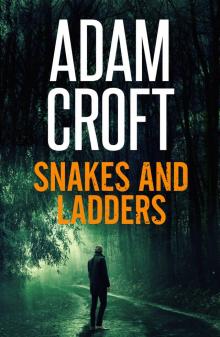 Snakes and Ladders
Snakes and Ladders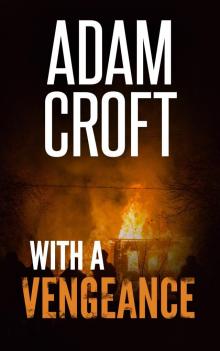 With A Vengeance
With A Vengeance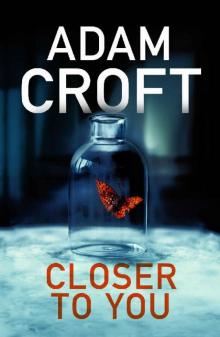 Closer to You
Closer to You In Cold Blood
In Cold Blood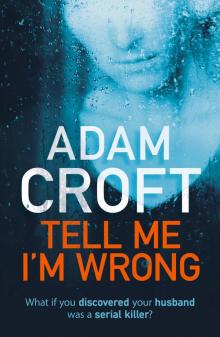 Tell Me I'm Wrong
Tell Me I'm Wrong![[Knight and Culverhouse 09] - In Plain Sight Read online](http://i1.bookreadfree.com/i/03/16/knight_and_culverhouse_09_-_in_plain_sight_preview.jpg) [Knight and Culverhouse 09] - In Plain Sight
[Knight and Culverhouse 09] - In Plain Sight Dead & Buried
Dead & Buried Too Close For Comfort
Too Close For Comfort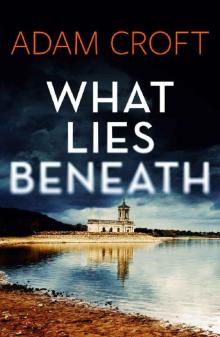 What Lies Beneath (Rutland crime series Book 1)
What Lies Beneath (Rutland crime series Book 1)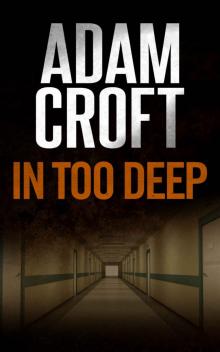 In Too Deep (Knight & Culverhouse Book 5)
In Too Deep (Knight & Culverhouse Book 5) Gone
Gone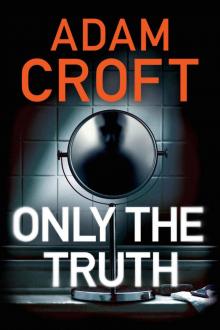 Only the Truth
Only the Truth Kempston Hardwick Mysteries — Box Set, Books 1-3
Kempston Hardwick Mysteries — Box Set, Books 1-3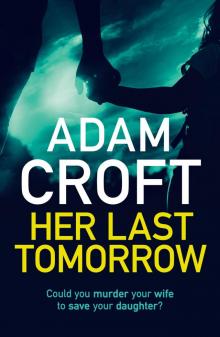 Her Last Tomorrow
Her Last Tomorrow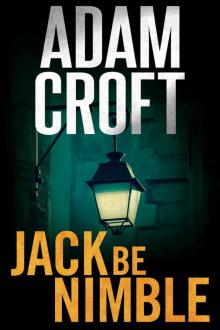 Jack Be Nimble (Knight & Culverhouse Book 3)
Jack Be Nimble (Knight & Culverhouse Book 3)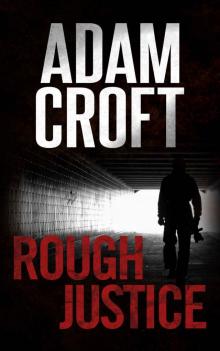 Rough Justice (Knight & Culverhouse Book 4)
Rough Justice (Knight & Culverhouse Book 4)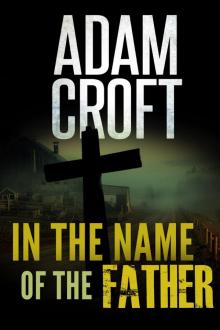 In the Name of the Father
In the Name of the Father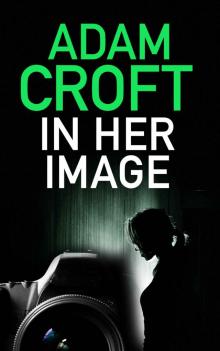 In Her Image
In Her Image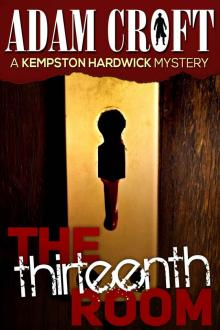 The Thirteenth Room (Kempston Hardwick Mysteries Book 4)
The Thirteenth Room (Kempston Hardwick Mysteries Book 4)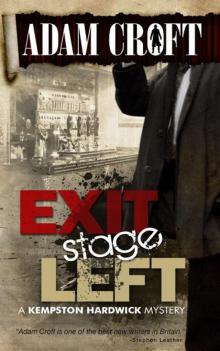 Exit Stage Left (Kempston Hardwick Mysteries Book 1)
Exit Stage Left (Kempston Hardwick Mysteries Book 1)